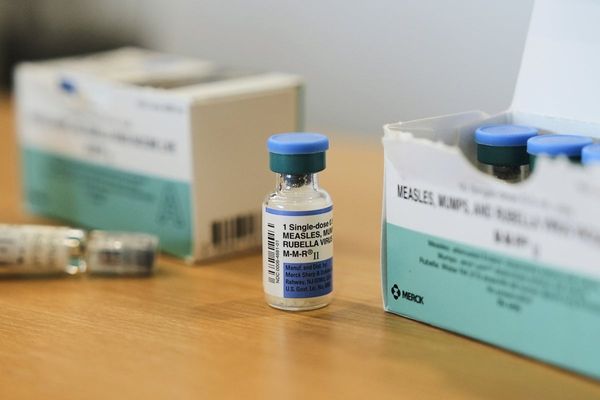
WASHINGTON _ The world's leading provider of malaria and tuberculosis aid to North Korea is ending its grants to the isolated country, citing concerns that donated supplies weren't going to their intended purposes.
The decision by The Global Fund comes amid increasingly tight sanctions in North Korea in retaliation for its nuclear weapons program, and it could worsen health conditions in the isolated country. But in a little-noticed Feb. 21 statement on its website, the Global Fund said it had little choice but to end grants to North Korea, a decision confirmed by a spokesman on Wednesday. The decision brings to a close the dispersal of a reported $103 million in medical aid to the north since 2010.
"The Global Fund could not gain adequate assurance that resources were going where intended," Seth Faison, the group's communications director, said in an email to McClatchy.
Based in Geneva, the Global Fund finances international efforts to fight infectious diseases. It has worked with UNICEF to distribute tuberculosis medicines and netting to prevent malaria in North Korea over the last eight years, a period when many charities pulled out of the country. In 2016, it funded medicines that helped treat more than 194,000 tuberculosis patients and the distribution of more than 2.2 million insecticide-treated nets.
Some public health experts warn that Global Fund's cutoff of grants could lead to needless deaths and the spread of infectious diseases that _ especially for malaria _ can cross borders.
"This decision is mind-boggling and shocking to anyone working in North Korea," said Dr. Kwonjune "K.J." Seung, an international tuberculosis expert affiliated with the Eugene Bell Foundation, a charity that treats drug-resistant tuberculosis patients in North Korea.
North Korea has some of the highest rates of tuberculosis in the world, said Seung, and the Global Fund has been the dominant provider of medicines to treat patients there with normal tuberculosis.
"If there isn't a good exit strategy, there will be increased incidence," said Seung. There's also a strong chance, he added, that more North Koreans will develop resistance to normal tuberculosis antibiotics if their treatment ends while they still carry the disease.
Faison said there's a chance the Global Fund will resume grants to North Korea in the future. For that to happen, "We would need to see significantly greater levels of transparency, assurance and risk management around the deployment of resources and effectiveness of grants," he said.
Operating in North Korea has become increasingly challenging for nongovernmental organizations in the last year. Because of U.S. sanctions, Americans doing direct humanitarian work there must get a special passport from the State Department. International restrictions on shipping metal into North Korea has hampered delivery of building supplies and even nail clippers, according to some reports.
Jonathan Schanzer, a former U.S. Treasury official and sanctions supporter, said the North Korean regime is becoming so cash-strapped that it may be looking for new ways to divert supplies and sell them.
"The financial pressures are growing. The sanctions are tightening. That is going to put the squeeze on North Korea and prompt them to evade further, and work harder to get access to capital," said Schanzer, a senior vice president for the Foundation for Defense of Democracies, a Washington, D.C-based think tank.
But Seung, who has traveled to North Korea repeatedly, said he's heard no reports of diverted medical supplies, and doubts there would be much a market for tuberculosis medicines.
"TB medicines are life-saving if you have TB, and completely useless if you don't," said Seung. "The only people who want them are TB patients.
"I've never heard any talk formally or informally that drugs were diverted and sold," he added. "Maybe Global Fund has some evidence of this, but I have never heard about it before."
In response to emailed questions, the Global Fund provided few details on what led to its decision.
Faison said the timing was related to the three-year cycle in which it decides on grants.
"We evaluated DPRK's (North Korea's) funding requests for the coming three-year period and judged that its unique operating environment prevents us from being able to provide our board with the required level of assurance," he said. So far, he added, North Korea's health ministry has not issued a response to the decision.
Founded in 2002, the Global Fund is solely focused on fighting malaria, tuberculosis, HIV and AIDs. The Gates Foundation helped provide seed money for its creation. By mid-2016, Global Fund had distributed $30 billion in medicines and supplies worldwide.
As recently as September of last year, Global Fund officials were stating that they planned to continue funding medical aid to North Koreans.
"Helping North Korean people is a humanitarian mission that should be dealt with separately from its government," said Global Fund director Christoph Benn in an interview with The Korea Times. "It's not giving money to the government but providing medicine to its people."







